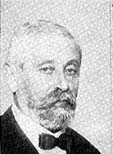
The Franz Liszt Academy of Music is a music university and a concert hall in Budapest, Hungary, founded on November 14, 1875. It is home to the Liszt Collection, which features several valuable books and manuscripts donated by Franz Liszt upon his death, and the AVISO studio, a collaboration between the governments of Hungary and Japan to provide sound recording equipment and training for students. The Franz Liszt Academy of Music was founded by Franz Liszt himself.

Hungary competed at the 1964 Summer Olympics in Tokyo, Japan. 182 competitors, 150 men and 32 women, took part in 111 events in 17 sports.
Budapest is the capital of Hungary. Below is a list of public place names of Budapest that refer to famous people, cities or historic events. Generality of Budapest's public place names relate to the Hungarian national history. In Budapest there are about 8,600 named public place.

The Hungary national handball team is administered by the Hungarian Handball Federation.

Hungary competed at the 1960 Summer Olympics in Rome, Italy. 184 competitors, 157 men and 27 women, took part in 107 events in 18 sports.

Hungary competed at the 1968 Summer Olympics in Mexico City, Mexico. 167 competitors, 135 men and 32 women, took part in 116 events in 15 sports.
István Farkas was a Hungarian painter, publisher and victim of the Holocaust.
Sandor Singer and Jozsef Wolfner founded Singer and Wolfner Book Publisher and Bookstore in 1885. It was one of the largest and most successful of Hungarian publishers.

Baron Adolf Kohner Szaszberek was a Hungarian businessman, landowner and a leading member of the Jewish community in that country.
Cafe Moscow is a 1936 Hungarian adventure film directed by Steve Sekely and starring Anna Tõkés, Gyula Csortos and Ferenc Kiss. Art direction was by József Pán. It is also known by the alternative title Only One Night. The film is set during the First World War on the Eastern Front between Russia and the Austro-Hungarian Empire. The film was intended to convey an anti-war message.

The Hungarian Canoe Federation is the governing body of Canoe in Hungary. It organizes the Hungarian representation at international competitions and the Hungarian National Championships.

The Hungarian pavilion houses Hungary's national representation during the Venice Biennale arts festivals.





